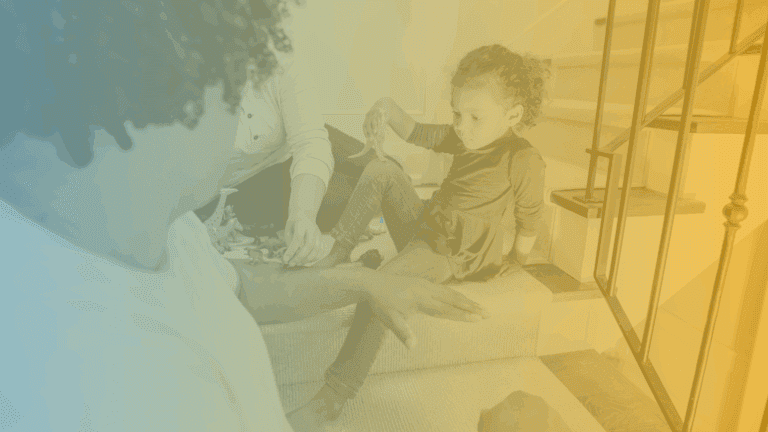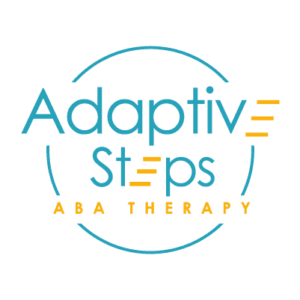Every child grows and learns at their own pace — but sometimes parents notice differences that spark questions. In this guide, Clinical Director Matt Salloway, BCBA, explains how recognizing early signs of autism can help families in Schaumburg and the Northwest Suburbs take the next step toward understanding and support.

Understanding Autism Signs in Schaumburg and the Northwest Suburbs
Every child develops at their own pace — but sometimes parents begin to notice differences.
Maybe your child avoids eye contact, prefers to play alone, or becomes upset when routines change. These moments can raise understandable questions about development and next steps.
If you’re searching for ABA therapy in Schaumburg or the Northwest Suburbs of Chicago, you’re already taking an important first step toward understanding and support. Families in nearby communities like Arlington Heights, Palatine, and Elk Grove Village often start here too — with curiosity, concern, and a desire to help their child thrive.
At Adaptive Steps ABA Therapy, we guide families through these early questions with compassion and evidence-based care. As a locally owned ABA clinic, our team provides in-home and clinic-based therapy designed to help children communicate, connect, and adapt — one small step at a time.
“Many parents start researching before they’ve even spoken to a specialist,” says Matthew Soloway, BCBA and owner of Adaptive Steps ABA Therapy. “They’re looking for answers, and that’s where compassionate, clear information really matters.”
Early Signs of Autism in Children
Autism Spectrum Disorder (ASD) affects how children communicate, interact, and adapt to the world around them. While each child is unique and autism doesn’t look one way, there are common early signs parents can look for.
Communication and Social Connection
- Limited or delayed speech
- Repeats words or phrases (echolalia)
- Difficulty expressing needs or following directions
- Prefers to play alone or avoids engaging with others
- Inconsistent response to name or difficulty reading social cues
Behavior and Daily Routines
- Upset when routines change
- Repetitive behaviors like rocking or hand-flapping
- Intense interest in specific toys or shows
- Sensitivity to sound, light, or textures
These examples come from the Adaptive Steps ABA Checklist, a free tool for parents noticing early developmental differences.
“What Does Autism Look Like?” — and Why That’s the Wrong Question
When families search online, they often type “What does autism look like?”
Soloway says that phrase can be both powerful and misleading.
“Autism doesn’t have a look or a sound,” he explains. “It’s a spectrum. Every child experiences it differently. When people click on that question, we want them to see that the focus isn’t on labeling — it’s on understanding.”
That understanding often begins with gentle observation and professional guidance. The goal isn’t to diagnose your child yourself, but to gather insight that can help you ask the right questions when you meet with a professional.
What to Do If You Notice These Signs
If you recognize several of these patterns, it may be time to connect with a professional who can help assess your child’s developmental needs.
Applied Behavior Analysis (ABA) is one of the most widely researched, evidence-based treatments for autism — and it’s most effective when started early.
At Adaptive Steps, therapy typically includes two to five sessions per week, depending on your child’s individualized treatment plan.
“Think of ABA therapy as a prescription,” says Soloway. “A BCBA writes the treatment plan and determines the dosage — that might be nine hours a week or up to forty for intensive cases. Then a team of Registered Behavior Technicians works one-on-one with your child to implement it.”
ABA therapy focuses on building communication, social, and daily living skills while supporting emotional regulation and family confidence.
The Parent Journey: What to Expect Emotionally
Starting ABA therapy can feel overwhelming — new schedules, new faces, new routines. But Soloway reminds parents that progress takes patience.
“A lot of parents tell me they wish they’d started sooner,” he shares. “They see progress so quickly and feel regret about waiting. My advice is always to focus on what you’re doing now — not what you could’ve done. Be present and give yourself compassion.”
He also emphasizes that growth is rarely linear:
“You’ll have good days and tougher ones. Celebrate the small wins — every success, no matter how small, drives the next step.”
Why Schaumburg Families Choose Adaptive Steps ABA Therapy
- ✅ Clinic-Owned and Community-Driven – Locally led by experienced BCBAs who understand the Northwest Suburbs.
- 🏡 In-Home ABA Options – Therapy sessions designed around your child’s natural environment.
- 👨👩👧 Family-Centered Approach – Parent coaching and collaborative planning to sustain progress beyond sessions.
- 📍 Convenient Locations – Serving Schaumburg, Arlington Heights, Palatine, Elk Grove Village, and nearby communities.
Download the Free ABA Checklist
Not sure where to start? The Adaptive Steps ABA Checklist helps you identify early signs and prepare for your first conversation with a professional.
“See the able, not the label. It’s the person who matters.”
📞 Call or text (847) 200-5078 to schedule a free consultation with Matt Soloway today.

